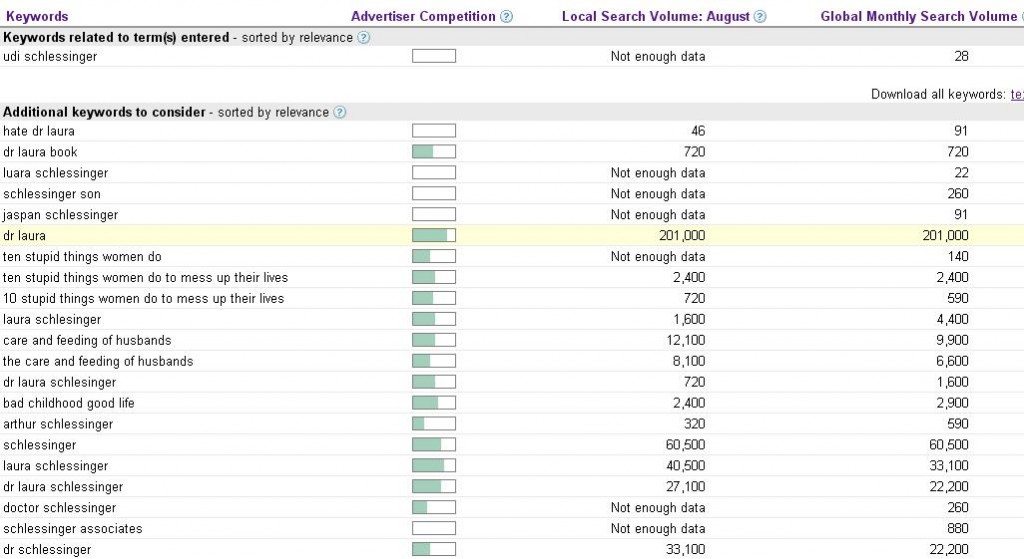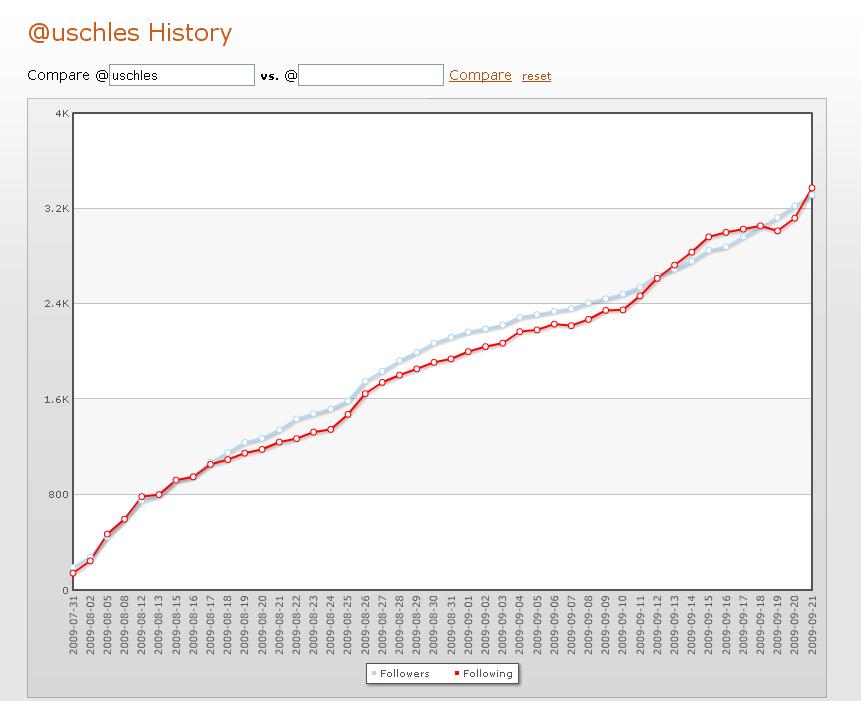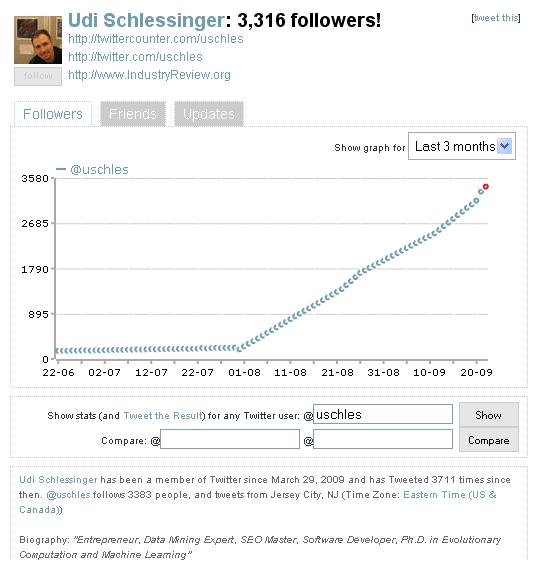
As you may know, the famous blogger, John Chow, has recently unfollowed almost all of his followers (~55,000) in a single day and left only a 100. I read his post about this and all the comments (there were a lot of those). I also read several of the posts other bloggers wrote following his decision, some with very harsh criticism. I’ve met John Chow in Affiliate Summit East and spoke to him on several occasions and think he’s a very nice guy. He unfollowed me too, but then again, I can’t say we are close, so I understand his decision, and certainly don’t take it personally.
But this post is not about John Chow’s decision. Plenty of words were written about that.
After reading all the mentioned posts it made me think: why do people follow celebrities? I don’t think John Chow is really a celebrity, but to a certain audience, he is. When I was an academic, certain people were celebrities in my field, but I assure you, they won’t get recognized on the street and you’ve never heard their names.
There are several reasons I can think of why people would follow a celebrity on Twitter (and note that this also applies to other social media sites such as Facebook):
- To get a reciprocal follow: meaning, if you follow John Chow, he might follow you in return. I believe that’s usually not the case when dealing with celebrities because there are several other million people you can follow who will follow you back, but I’m just listing it as a possible factor.
- Because you’re curious about their lives. Why do people follow Ashton Kutcher or Britney Spears? To see what they do in their day to day life. Hey, it’s all public, so why not? They invite this publicity.
- Because they provide interesting content. Some celebrities, such as Mashable, write excellent content. Really, almost every one of Mashable’s tweets is a winner – I could not unfollow him even if I wanted to because he’s simply too good a source to give up. It doesn’t matter at all that he doesn’t follow me back. The New York times doesn’t read my blog and I don’t stop reading it, do I?
- Because they want a chance to interact with them. If you follow someone, you can comment on something they do or they may follow you back… and then you may actually get to ‘talk’ to them. Touch the stars. Be a part of their lives. This goes back to one of my first posts which dealt with interaction.
I think for most people it’s usually (4), that is, the chance to interact with celebrities, and to a lesser extent, (2), that is, to simply follow their lives out of curiosity. However, let’s face it, the tweets of most celebrities are extremely boring. It’s like seeing the twitter account of your not so bright teenage next door neighbor. That being said, interacting with a celebrity means you get to say “Hey, I chatted with Britney today” even if all she responded to you was “thank you” – and you get to talk about this for years to come! So I think interaction is the main reason, even if it’s trivial interaction.
This reminds me of quick personal anecdote: should I be discussing this in a public forum? Never mind. In the mid 90s, a friend of mine used to be a secretary of a very famous Israeli general who – years later – was a candidate to be the head of the Israeli Mossad (he didn’t get the job by the way). You’d often read about him in the news at the time since he dealt with very sensitive issues. When she left her job, she had a small going-away party (for around 20 people), and he came too as her boss. She personally introduced everyone to everyone, so I was introduced to him as well. At some point someone was talking in the background while she was making a speech, effectively interrupting her (rather impolitely), so he shouted “Silence, Schlessinger!”. Clearly he confused that guy who was misbehaving with me (my friend quickly corrected him, “No no, that wasn’t Udi, he’s a good guy”). But for years later I used to say “You know, the potential head of the Israeli Mossad shouted at me in anger”. Silly, I know, but worthy of an anecdote even 15 years later. Don’t you think?
Anyway, my above conclusions made me examine my own list of people I follow. I follow very few celebrities, and most of them are in John Chow’s league (i.e. most people won’t know them). I asked myself: why do I follow William Shatner? I really liked him in Star Trek, but his Tweets are boring (no offense Bill if you’re reading this). I know why I follow Mashable (mentioned above). I started following Brent Spiner (Data from Star Trek) because – I guess – I was curious and wanted to interact with him, but now I follow him simply because he is a very interesting person. He’s extremely witty and funny, and provides one of the best sources of content on Twitter.
After this pondering I realized that very few of the celebrities I follow are really justified. Most are either boring (often very boring) and they most definitely don’t interact with me. So why should I follow them? Once I realized that, I unfollowed most (like all 6 of them 😉 ) and left those that either I really find interesting, or have interacted with in the past. Sorry Shatner, you had to go. Don’t take it personally, I still think you were awesome in Star Trek.
Just thought I’ll share this with you, my reader: if you follow some people (celebrity or otherwise) on Twitter, ask yourself, why do you do that? Do you really care about them? Do you just follow them because you want an extra follower? Do you find their tweets interesting? Thoughts worth thinking in my opinion.









